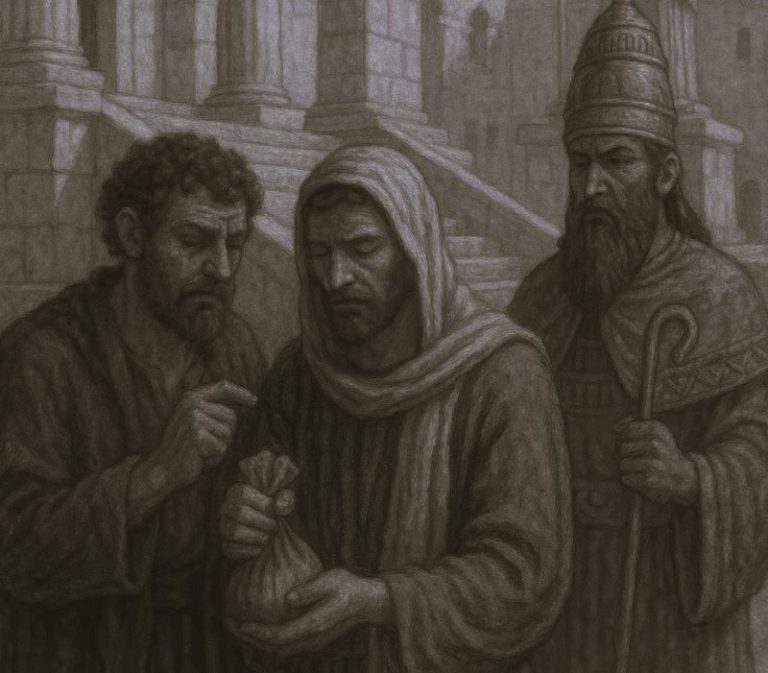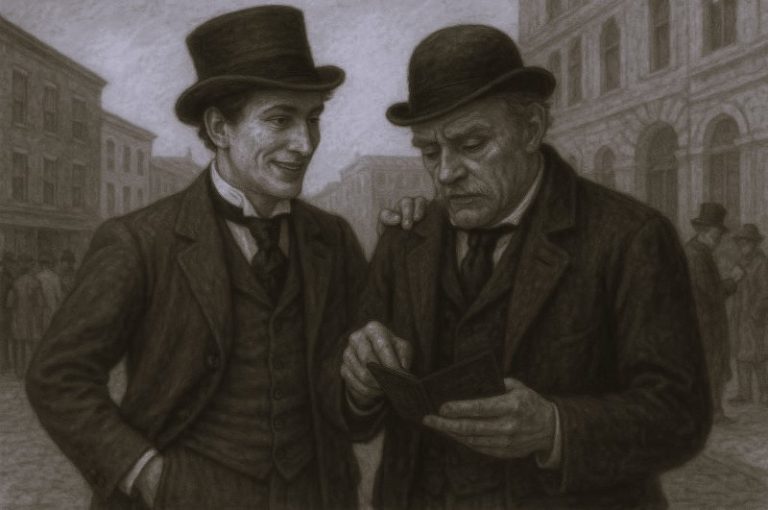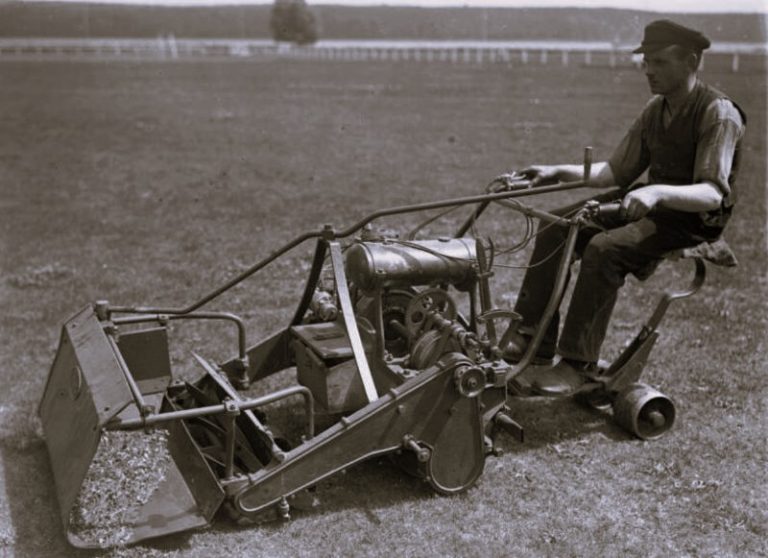

The Massachusetts Bay Colony led the way in establishing a postal system in America.
By Alison M. Gavin
Introduction
Next–day delivery, the Internet, texting . . . never has communication on a personal level been so easy. Telecommunications, which has made enormous progress over the last 10 years, stands alone as a testament to American ingenuity in the world market.
Not even today’s octogenarians can imagine, however, the extent to which communications has improved since colonial times. Getting a letter to a neighboring town was difficult and involved, while trying to get one’s mail across the Atlantic to Great Britain might prove futile.
The emergence of Benjamin Franklin, first as Philadelphia’s postmaster in 1737, and then as deputy postmaster for British North America in 1753, brought much–needed reform to the postal system in the American colonies. He developed a “Dead Mail Office” for undeliverable letters and began a system of fast–sailing “packet ships” for the delivery of mail from abroad.
Franklin was dismissed from his position in 1774 for his association with writings injurious to the Crown and replaced by loyalist Hugh Finlay. But Finlay’s appointment was short–lived and nearly meaningless. American revolutionaries were destroying British postal routes throughout the colonies and viewed postage paid to the Crown as taxation without representation. The colonists began their own postal system, the Constitutional Post, in May 1775 with Franklin as the new postmaster general. The Crown’s postal system in the colonies ceased by Christmas of that year.

Franklin often gets credit for beginning the first system of mail service along the eastern seaboard. But Hugh Finlay made improvements that are documented in a journal kept between September 13, 1773, and June 26, 1774. The original handwritten “Journal Kept by Hugh Finlay, Surveyor of the Post Roads on the Continent of North America” is in the National Archives. Finlay’s journal is significant among the National Archives’ pre–federal records for two reasons. First, it provides a transition between the British postal system of the colonies and the U.S. postal system. Second, it serves as documentation of the antagonism that Finlay, a Crown appointee, encountered from American patriots in the period leading up to the Revolutionary War.
A Neighborhood Event—Mail Handling in the Colonies
The Massachusetts Bay Colony led the way in establishing a postal system in America. The introduction to the 1867 printing of Finlay’s journal describes early methods of distributing the mail. As early as 1639, one colonist, Richard Fairbanks, received and sent off letters from his Boston home. He charged a penny for each letter but had to “answer all miscarriages through his own neglect in this kind.”
In other American colonies, “every family sen[t] a member on board [incoming ships] for the purpose of receiving letters.” Letters that went unclaimed were taken to a coffee–house or a tavern near the wharf that was heavily frequented by the community. There the items were spread out on a table. People would come in and “carried away not only their own letters, but all the letters belonging to people in the neighborhood.” Letters or packages for persons far from a city would be given to a local magistrate or minister to distribute in his town. For there to be any guarantees that a letter would arrive at longer distances, senders had to hire a rider or entrust it to travelers going in the general direction.
The idea of post offices and regularly scheduled arrivals and departures of a postal rider, as established in England, evolved slowly in the colonies. Much of the territory, especially in the south, was wilderness. Travel required fresh horses, overnight stays, and hardship on the part of the rider in the event of flood, heat, or snow. Even if there was a system of postal riders in place, the sender still could not be certain that the letter would arrive safely. Most postmasters in major American villages and towns kept sloppy accounts or no accounts at all. The position was usually a part–time job financed by the Crown, given to the local customs official, printer, bookseller, tavern–keeper—or simply anyone who was willing to do it. The colonists did not consider post officer or post rider a desirable position. A larger issue was the reluctance of colonists to adhere to the Crown–sponsored mail system. Resentment over the cost of postage going to the Crown’s purse, and the inefficiency of the Crown’s post offices, led to widespread clandestine franking and delivery. This was something Finlay was determined to change.
Hugh Finlay’s Expeditions in the Name of Better Mail Service

Finlay did not begin his civic career as a postmaster. Arriving in Canada from Scotland, shortly after the territory was ceded to Great Britain in 1763, he worked first as a merchant in Quebec and rose quickly among the English and French communities. No doubt his ability to read and speak French fluently added to his value as a businessman. Quebec’s city council soon appointed him a justice of the peace. Later that year, Benjamin Franklin, then joint deputy postmaster general of British North America, put Finlay in charge of the colonial post office in the Canadian territory. Finlay established post offices at Quebec, Trois–Rivières, and Montréal and between these cities and New York. Two years later, Finlay was appointed to the Governor’s Council, where he oversaw transportation and roads for the Crown. In December 1772 the British postmaster general appointed him postal surveyor. In this position, he mapped out the most expedient routes in British North America to facilitate the safe delivery of mail. In September of the following year, Finlay began mapping out a new post route between Quebec and Falmouth, Maine. On October 2, 1773, he headed south from Falmouth through New England on a tour of post offices and roads. Upon arrival in Philadelphia, he boarded a boat to Charleston, South Carolina, to begin a journey northward to Virginia, where he ended his trek in May 1774.
Finlay displays the zeal of Jesuit explorer and the tenacity of a master politician in his journal. The journal documents the quality of roads and mail service, Finlay’s assessments of the postmasters and their records, and observations on the American colonists’ increasing antagonism toward Great Britain. What emerges from the journal is a portrait of an intense and dedicated public servant who refused to back down from his allegiance to the British Crown.

To support his postal survey from Quebec across Maine, the “Gentlemen of the Council” and city of Quebec raised “more than a sufficiency” of funding. The expedition party included several Indians who knew both English and the Abenaki language native to that region, a scout for marking the path for a potential postal road to the Kennebec River, two military officers, two servants to help carry the provisions and three canoes, and Finlay.
Like many of the European immigrants to the North American continent, Finlay’s feelings toward the Native Americans vacillated. Of the Indians’ cartographic abilities he writes, “It is impossible to guess distances from an Indian draft; that people have no idea of proportion.” Yet within a day he wrote, “Every night after supper, Mentowermet, our chief guide, drew a sketch of the next day’s route on a sheet of smooth birch bark with charcoal.” As the expedition neared the border of Maine (then governed by Massachusetts), Finlay released the Indians from their duties:
“I discharged my Indians here, and instructed the Interpreter to return to . . . where we left provisions. . . . I recommended it to him, to keep it ever in his mind that the intention of this examination was to learn the most proper pass for a road.”
Finlay’s ultimate appreciation of their services is obvious, however: “We parted from our Indian friends.”
The second part of Finlay’s postal survey journey, taking him from Falmouth to Savannah, Georgia, and then to York, Virginia, serves as proof of his determination. As with his trek through Canada, Finlay encountered physical challenges such as hail, lame horses, quicksand, and broken ferries. On a personal level, he encountered rude, inhospitable behavior from city–dwellers and farmers alike. In many cases, Finlay’s proposal of a new colonial postal route was rebuked by the colonists. Instead of seeing it as an advantage, colonists felt it would “reduce the value of lands, for this reason they will not encourage the settlement of the East by opening roads.”
American Patriots and the End of Crown–Regulated Mail

Using their own, unpredictable method of mail delivery, American patriots found a relatively easy way around the Crown’s system in place. In Rhode Island, Finlay comments,
“[There are] two Post offices in New Port, the King’s and Mumfords [a resident]. . . . It is common for people who expect letters by Post finding none at the Post office to say ‘well there must be letters, we’ll find them at Mumfords.’ It is next to impossible to put a stop to this practice in the present universal opposition to every thing connected with Great Britain.”
Like the tax collector in early colonial America, Finlay was an unwelcome sight to many post officers and riders. Anyone who cooperated with him, he wrote, “would draw on himself the odium of his neighbours and be mark’d as the friend of Slavery and oppression and a declar’d enemy to America.”
When Finlay visited Massachusetts, a “good authority” told him, “the assembly will not grant one shilling towards opening a road this way, into Canada. . . . Governor Hutcheson [Massachusetts Governor Thomas Hutchinson] promised to write to the Minister on this matter.” In Falmouth, the deputy postmaster “once attempted to put the Law in force and took the letter bag of one of those vessels [that carried letters illegally outside the post] to the office, but it made such a bustle and noise in town that he dared never attempt it again.” Likewise, in Salem, if a complaint were made about letters not going through the post office, “(. . . an informer wou’d get tar’d and feather’d) no Jury wou’d find the fact; it is deem’d necessary to hinder all acts of Parliament from taking effect in America”
Finlay’s public service did not end with the establishment of the United States of America. As a loyalist, he found refuge in Canada when the war began. Always sensitive to the ways in which mail delivery might be improved, he participated in a correspondence with the British Home Office in the 1780s. Urging colonization in Canada, and the creation of postal offices every 10 miles, he advocated the use of snowshoes for postal officers in a 1783 letter:
“Till then the Mails must be drag’d on handsleighs by men on snowshoes, a painful and slow mode of Journeying in the winter, but there’s no other way of getting forward in a country four, five, or six feet deep with snow, without inhabitants to beat and keep the way open.”
In 1787 he was given responsibility over the whole postal service of British North America, not including the newly formed United States. His participation in the first–ever international postal convention in New York in 1792 led to a significant decision by the Americans to permit mail from Canada to pass through New York. But through a series of unfortunate circumstances, Finlay was dismissed from his position in 1799 on the grounds of irregularities in accounting, even though the charge referred to a postmaster under him, not to him directly. Finlay died on December 26, 1801, deeply in debt. His life had been one of courage, tenacity, and allegiance to the Crown. From his early days as a postal surveyor to later years as an administrator, Finlay set an example for public service in the wilderness and city alike.
Hugh Finlay knew the American character well, even before the first shots at Lexington, At the beginning of his tour of the Eastern seaboard, he observed the colonists’ character: “They are[,] they say[,] to be governed by Laws of their own framing, and no other.” In the face of opposition, unpopularity, and the growing resentment of a nation, however, Finlay remained a steady loyalist civil servant. As he confidently declared to a group of North Carolinians he visited regarding the postal system in British North America in 1774, “The Publick good is the sole inducement for taking so much trouble as we do.”
Originally published by Prologue 41:2 (Summer 2009), the United States National Archives and Records Administration, to the public domain.






